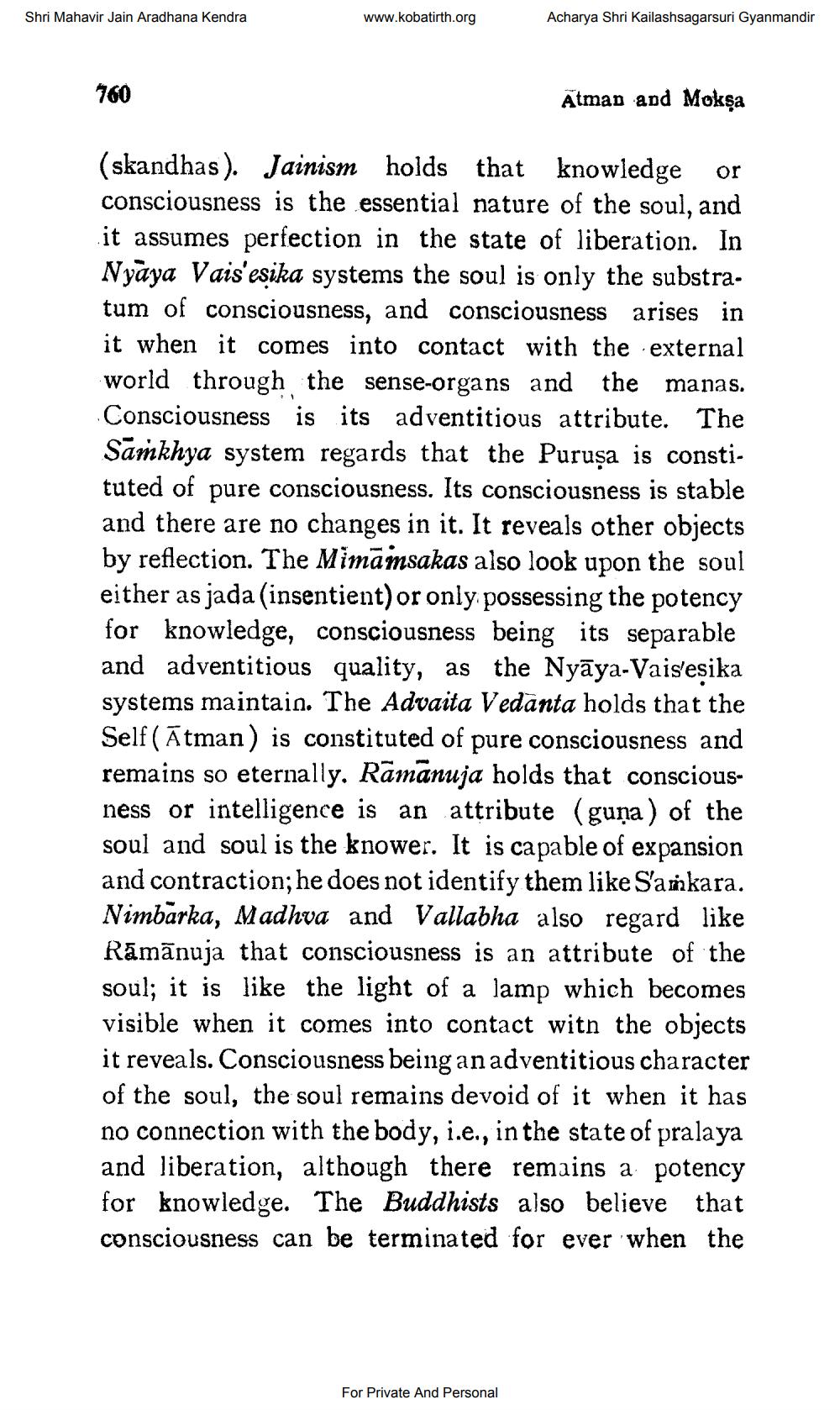________________
Shri Mahavir Jain Aradhana Kendra
www.kobatirth.org
Acharya Shri Kailashsagarsuri Gyanmandir
760
Atmap and Mokşa
(skandhas). Jainism holds that knowledge or consciousness is the essential nature of the soul, and it assumes perfection in the state of liberation. In Nyaya Vais'esika systems the soul is only the substratum of consciousness, and consciousness arises in it when it comes into contact with the external world through the sense-organs and the manas. Consciousness is its adventitious attribute. The Samkhya system regards that the Purusa is consti. tuted of pure consciousness. Its consciousness is stable and there are no changes in it. It reveals other objects by reflection. The Mimāisakas also look upon the soul either asjada (insentient) or only possessing the potency for knowledge, consciousness being its separable and adventitious quality, as the Nyāya-Vais'esika systems maintain. The Advaita Vedanta holds that the Self ( Ātman) is constituted of pure consciousness and remains so eternally. Ramanuja holds that consciousness or intelligence is an attribute (guna) of the soul and soul is the knower. It is capable of expansion and contraction; he does not identify them like Samkara. Nimbarka, Madhva and Vallabha also regard like Rāmānuja that consciousness is an attribute of the soul; it is like the light of a lamp which becomes visible when it comes into contact with the objects it reveals. Consciousness being an adventitious character of the soul, the soul remains devoid of it when it has no connection with the body, i.e., in the state of pralaya and liberation, although there remains a potency for knowledge. The Buddhists also believe that consciousness can be terminated for ever when the
For Private And Personal




